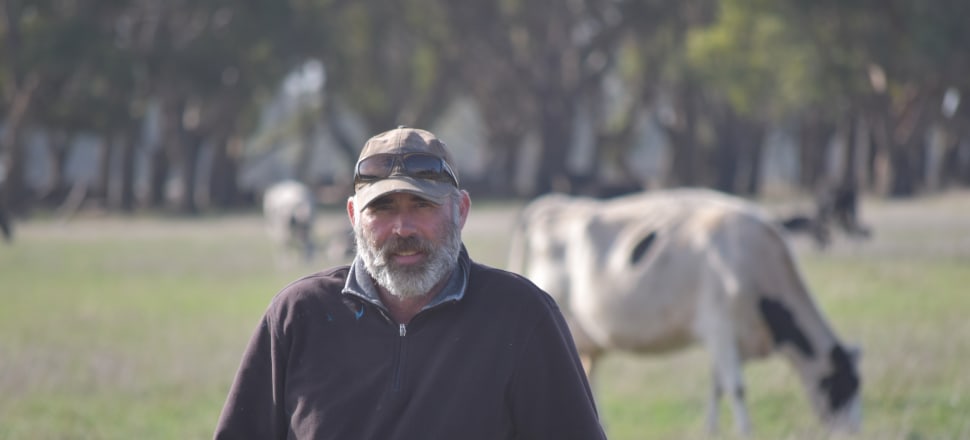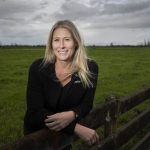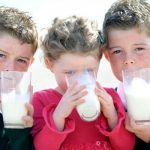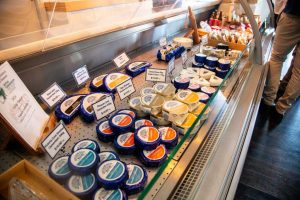
Six months after the fires, Phillip found himself crashing to the ground.
“The first six months are okay because you’ve got terrific support from family, friends, Blaze Aid and the whole community and you’re so busy fixing fences and gates and getting your cattle and farm back up and running.
“You’re on the phone non-stop getting everything organised, but after that’s done it kicks in and hits you.
“You burn yourself out.”
The charred trees around his house are still visible, but Phillip’s mental scars have finally cleared. He has shared his story in the hope that it can inspire farmers hit by this summer’s fires to seek help if they need it.
“When there’s no more extra work to be done; you can sit and relax and that’s when you look back at the fire and that’s when depression, anxiety or unhappiness can happen.
“If there are farmers out there feeling not too happy, go and get help. I had to. For the sake of my family and my own wellbeing I had to get help.
“You might think you’re okay, but you’re not.”
The good news is that time and support can be great healers.
“It gets easier,” Phillip said. “It’s taken me two years to mentally and physically get back on top of it but I got there.”
The third-generation farmer was at home when he got a call about the fire about 8pm on Saturday, March 17.
The blaze started at a Powercor substation about one kilometre away at Terang and fanned by blustery winds soon hit his farm.
The local volunteer fire brigade put loads of water around the family house and it was saved, however, nearby trees and sheds, including Phillip’s classic motorbike collection, were destroyed.
About 85 per cent of the farm was burnt and 70 cows killed, but it could have been much worse.
“The grass was very short so when the fire came through there wasn’t much to destroy. It just flew across and burnt the ground but didn’t seem to kill the grass. We sowed the whole farm but a lot of the original grass came back.”
His main priority was saving his cows.
“By the time I knew about it, it was already at the back of the farm. With fast-moving grass fires, you just have to react and go. We went out and could see it running through the back of our property. It was going very quickly and we could see big whirlwinds going through the paddock.
“I had cattle in the back paddock but we had no hope of getting to them.”
Phillip and stepson Jordan Kidd got in the ute and chased the May calving cows about three kilometres to the dairy and then returned to protect the milkers.
“A cow’s got a heartbeat. They’re your lifeblood; you’ve got to look after them,” Phillip said.
“They’ve got a right to live. They’re not like a motorbike or shed.”
Phillip isn’t shy about admitting they were scared. “We chased them all the way with fire coming behind us and trees and limbs coming down but we had to try to save them.”
When he returned to the house, the sheds were on fire but the brigade’s work meant the house was saved and the dairy was also spared.
With most of the herd already dry, Philip, his father Ian, Jordan, and other family and friends could concentrate on recovery.
“It happened in March and we were due to start calving in May so it only gave us a few months to set up the farm,” he said.
“Dad and I look back and wonder how we did that amount of work. Without the help of family, friends and Blaze Aid we couldn’t have done it.”
Phillip plans to get a caravan and join future Blaze Aid volunteer teams. “That’s one of my bucket list items,” he said.
Some rolls of feed were saved and Phillip was able to put the cows on two paddocks.
“It got a bit stressful around the start of May when I only had one side of the farm fenced and needed a lot of little paddocks for calving to look after them properly, but I called Blaze Aid and they got about a dozen people out here and they knocked it off in about 10 days.”
There was no question of walking away.
Phillip, 49, started on the farm when he was 17, working alongside Ian. Ian had also started young, taking over from his mother when he was 16. His father had died early and the family moved to Terang as sheep farmers. Ian converted to dairy.
One of their early tasks was building a 21-a-side herringbone dairy which is still in use.
They now milk 250 Friesian cows on 170 hectares, with a second farm for young stock about 25 kilometres away at Cudgee.
“We’ve been using A.I for 30-odd years and that’s improved the quality of the herd. Production gets better and better as you improve the herd, and that’s the name of the game.”
When re-establishing the farm, Phillip had an eye on the future.
“A lot of farmers my age are pulling the pin or getting out of dairy and semi retiring into beef. There are a lot of costs in dairy. The prices have been good for the past six or eight months but it’s a grind of milking twice a day. Because the price of beef has gone through the roof, you could be on a good wicket just with beef farming.”
The fencing was replaced so the farm could adjust to beef, possibly in around five years.
In the meantime, Phillip is happy to continue dairy farming. He’s always taken a steady approach to farming and that won’t change. He’s not interested in buying more land and doesn’t need the latest inventions.
“Farming is so complex and every farm is different but you’ve got to be patient and don’t rush things,” he says.
“Don’t give up; that’s the key to farming, and have a go at doing everything.”
Phillip’s farming is based on what he learnt from his father and what he’s learnt through experience.
He’s tried summer crops, but they didn’t work so he sticks to pasture, over-sowing paddocks to top them up as needed.
“You’ve got to keep your costs down, use good fertiliser and good seed, make sure the dairy is working well and keep your cell count down. We herd test seven or eight times a year and get rid of any cow with high cell count.”
When the fire hit, he had some savings to call on for immediate relief.
“I always say don’t go into too much debt, don’t go too big too quick, and have a few pennies in the pocket,” Phillip said. “I’m a strong believer that you shouldn’t go past 17 per cent debt. If you do that, you’ll make a pretty good living.”

























